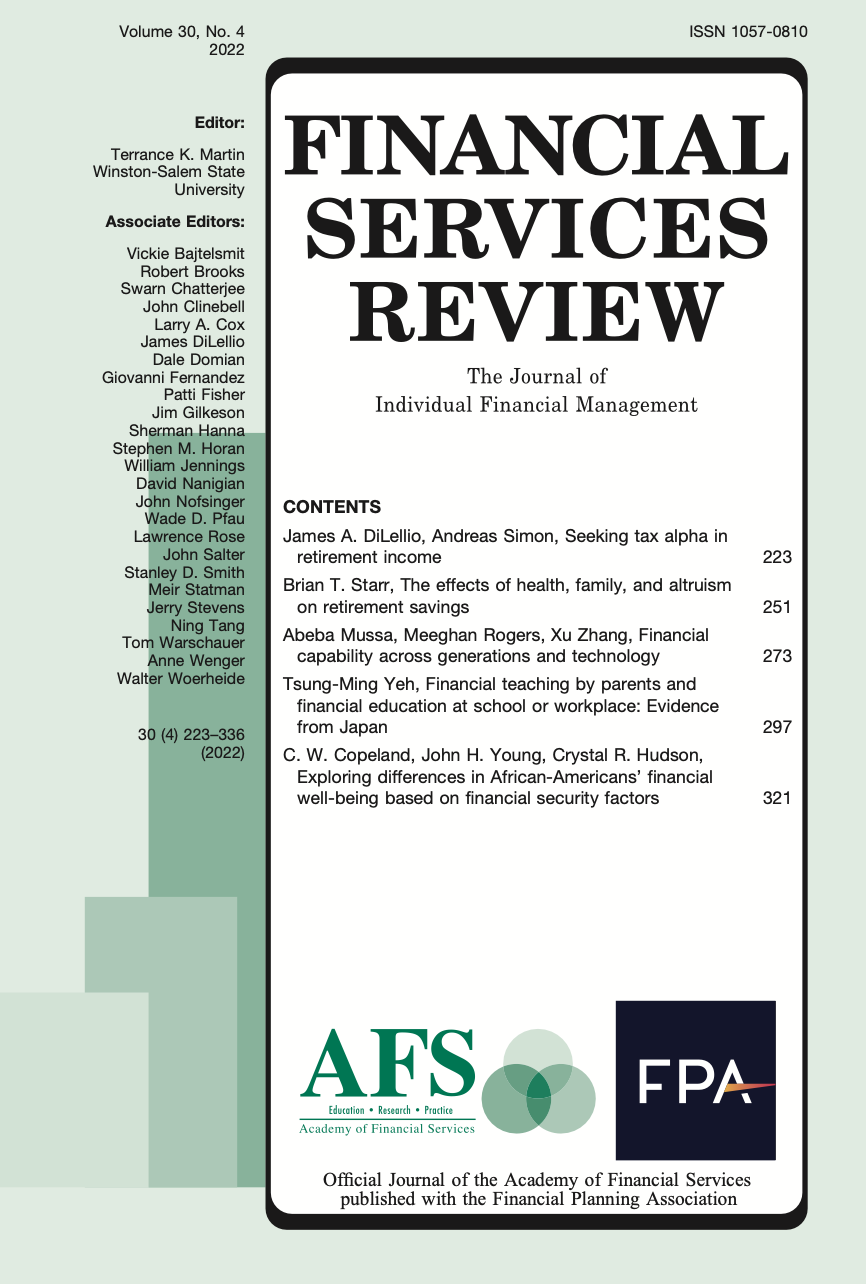Exploring differences in African-Americans’ financial well-being based on financial security factors
DOI:
https://doi.org/10.61190/fsr.v30i4.3163Keywords:
Savings, Employment, Homeownership, Stress, Standard of living, Quality of life, Middle income, Middle class, Living standards, General welfare, Financial well-beingAbstract
What impacts the financial well-being of African Americans, compared with other ethnic groups, has been a mystery beyond basic socio-economic factors. However, when explored through the lens of homeownership and employment, two variables that have been latent due to historical racism, African Americans fare far worse than other ethnic groups. This study utilized data from the 2016 National Financial Well-Being Survey (NFWBS) including the CFP Financial Well-Being Scale, and specifically targeted middle-income African Americans. Researchers found that when efforts are made to pull themselves up by their bootstraps through long-term savings, investing, and education, African Americans only show statistical significance if they are middle-income because student loans tend to create a drag on financial well-being levels.
Downloads
Published
How to Cite
Issue
Section
License
Copyright (c) 2023 C. W. Copeland, John H. Young, Crystal R. Hudson

This work is licensed under a Creative Commons Attribution-NonCommercial 4.0 International License.
Author(s) retain copyright and grant the Journal right of first publication with the work simultaneously licensed under a Creative Commons Attribution-NonCommercial 4.0 International License that allows to share the work with an acknowledgment of the work's authorship and initial publication in this Journal.
This license allows the author to remix, tweak, and build upon the original work non-commercially. The new work(s) must be non-commercial and acknowledge the original work.


